



Workshops
8
WORKSHOPS





Workshops
8
WORKSHOPS
ATTENDEES 30 COUNTRIES
ALGERIA, AUSTRALIA, AUSTRIA, BANGLADESH, BELGIUM, BRAZIL, CAMEROON, CANADA, CHINA, COSTA RICA, GERMANY, GREECE, INDIA, IRAN, IRELAND, ITALY, LEBANON, LITHUANIA, NETHERLANDS, NIGERIA, POLAND, PORTUGAL, SOUTH KOREA, SPAIN, SWITZERLAND, TANZANIA, TURKEY, UGANDA, UNITED KINGDOM, UNITED STATES
Fellowships
10 FELLOWS 12 FELLOWSHIP EVENTS
14
Departments, schools and institutes were involved in hosting Fellowships and workshops
ias.surrey.ac.uk

Since its inception in 2004, the Institute of Advanced Studies (IAS) has brought people together to explore interdisciplinary research that tackles today’s global challenges. Each year, international scholars, artists, entrepreneurs and public servants visit Surrey as IAS Fellows or to attend workshops, to focus on pioneering research in science, engineering, social science and the humanities. These events and visits have resulted in many research grants, new collaborations, journal articles and books, as well as many happy memories of their time in Surrey. We thank the University of Surrey for its continued support in helping us build a richer research culture with scholars from around the world.
The Institute is a member of the UK Consortium of Institutes of Advanced Study and the international Consortium of Humanities Centers and Institutes.
Nigel Gilbert DIRECTOR
Nigel Gilbert has a Distinguished Chair in Computational Social Science at the University of Surrey. He read for a first degree in engineering and obtained his doctorate on the sociology of scientific knowledge from the University of Cambridge. His main research interests are processual theories of social phenomena, the development of computational sociology, and the methodology of computer simulation, especially agent-based modelling. As Director of the University’s Institute of Advanced Studies, he is responsible for its development as a centre for international intellectual interchange.
n.gilbert@surrey.ac.uk
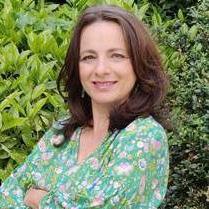
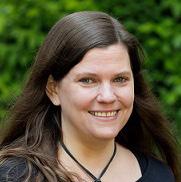
Mirela Dumić COORDINATOR
Mirela is responsible for the overall management of the Institute, including its annual grant competition and the Fellowship scheme. She supports the IAS Director in strategic activities and liaises with the Institute’s Advisory Board, the University’s academic community, external Fellows and similar institutes in the UK and abroad. She is also responsible for the Institute’s publicity and dissemination of outcomes from events and Fellowships.
m.dumic@surrey.ac.uk
Louise Jones ADMINISTRATOR
Louise provides general administrative support to the Institute with a particular focus on the workshops that run each year following the annual grant competition. She is the main point of contact for workshop organisers and their administrators, providing support and assistance as required. Louise is also a school administrator for the School of Social Sciences and is the primary point of contact for Sociology.
l.jones@surrey.ac.uk

Over the years our events and Fellowships have resulted in many research grants, new collaborations, journal articles and books, as well as much goodwill from all over the world.
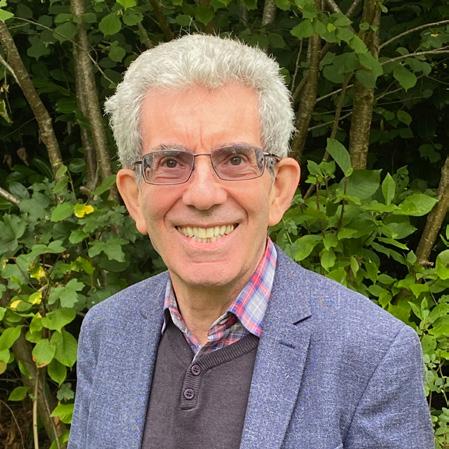
It has been another exciting year for the Institute, one of collaboration, innovation and impact. This year, we’ve welcomed academics and practitioners from around the globe, all of whom have contributed towards furthering our mission – to foster interdisciplinary dialogue, spark new ideas and address the complex challenges facing society today.
Professor Nigel Gilbert
This year’s workshops and Fellowships have some common themes – health, sustainability and the use of AI in addressing these challenges. One of the highlights was our workshop on One Health which reflected on how methodological expertise from diverse sectors is essential to tackling the complexities of the global crises in health, climate, biodiversity and social inequality. Interdisciplinary discussion focusing on the intersection of technology, borders and human mobility was another particularly timely and significant workshop.
The climate crisis was a challenge that several of the workshops addressed – not just here on Earth, but in space, with Dr Feja Lesniewska’s ‘mission sustainable’ workshop, which explored approaches to space governance in addressing climate change and biodiversity extinction.
Ten Fellows visited the Institute this year, bringing a wealth of experience and perspective on a range of research topics. I was particularly excited to see the creativity and inspiration that our artists in residence have brought to the Institute.
From Simon Raven’s take on disability and satire – occasionally while wearing a gold Elvis suit – to Boris Allenou’s audio interpretation of a tick’s lifecycle and Harry Yeff’s immersive performance – these all brought new perspectives to how we view the world.
We are very glad that the workshops and seminars given by our Fellows have not only attracted Surrey academics, but also many graduate students, people from a wide range of businesses and other organisations, and interested members of the public.
It is 20 years since we ran our first workshop. In a video celebrating our anniversary, you can hear directly about two of our workshops from their organisers and from one of our artists in residence.
Thank you from the IAS team (Mirela, Louise and myself) to all our Fellows, partners and colleagues who have contributed so richly to the IAS this year.
The year has been defined by curiosity, creativity and connection, and as we look to the future, I invite you to celebrate with us and read the inspiring reports from this year’s workshops and Fellowships. Together, we continue to shape knowledge, challenge assumptions and imagine new futures.
Professor Nigel Gilbert, IAS Director
The IAS Advisory Board’s members are senior members of the University faculty, including the Associate Deans of Research and Innovation from the three faculties, two Surrey Future Fellows and an external member. The Institute’s Advisory Board advises on the strategy of the Institute and reviews and recommends which bids should be funded in the annual competition.

EMILY CORRIGAN-KAVANAGH
Surrey Future Fellow in Faculty of Engineering and Physical Sciences

DEBORAH DUNN-WALTERS
Professor of Immunology (Associate Dean Research and Innovation, Faculty of Health and Medical Sciences)
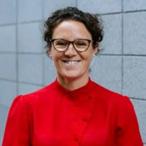
CATHERINE MCNAMARA
Head of Guildford School of Acting (GSA)

JUSTIN READ
Professor of Astrophysics

DERK-JAN DIJK
Professor of Sleep and Physiology

NIGEL GILBERT
Professor of Sociology (IAS Director)

JANE OGDEN
Professor of Health Psychology

EMMA TAYLOR
Surrey Future Fellow in Faculty of Health and Medical Sciences

PROFESSOR RAO BHAMIDIMARRI
Chairman, Carbondown
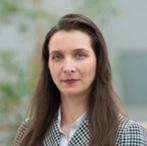
MARIALAURA DI DOMENICO
Professor of Entrepreneurship, Work and Organization

JOSEF KITTLER
Professor of Machine Intelligence

GLENN PARRY
Professor of Digital Transformation (Associate Dean Research and Innovation, Faculty of Arts, Business and Social Sciences)

JIN XUAN
Professor of Sustainable Processes (Associate Dean, Research and Innovation, Faculty of Engineering and Physical Sciences)
The climate crisis is a global concern, impacting us all in many ways. Interdisciplinary research is therefore essential in developing strategies and technologies to address this urgent situation. IAS sponsored three workshops this year to foster collaboration and explore how to achieve sustainability for a safer future.
Imagine a single piece of debris the size of a pound coin hurtling through space. It then hits a satellite at such a velocity that the satellite is destroyed, having huge cost implications, and creating more debris, raising a threat to other space activities. Our ability to cause environmental damage, not just from space debris but also emissions from space launches, chemicals burning in the atmosphere, rare earth mineral extraction and more means that Earth-space sustainability research now extends beyond debris recovery to prevention, smart design and regulation.
Dr Feja Lesniewska, a sustainable transitions and environmental legal scholar at Surrey Law School, is exploring approaches to sustainable space governance, as addressing global challenges on Earth, such as climate change, biodiversity extinction and pollution become increasingly critical.
Current approaches to sustainable Earth-space law and governance are fragmented along disciplinary lines from science and engineering to law and

economics. This leads to a patchwork of research that lacks the multidimensional coherence needed to understand the complex interconnections and interdependencies underpinning human Earth-space activity.
In organising an IAS workshop, Feja was keen to recognise the importance of an interdisciplinary approach to identifying not only problems but also potential solutions to sustainable Earth-space governance.

UNOOSA Director, Aarti Holla-Maini addressing workshop participants via video link.
Feja hosted the Mission Sustainable workshop at Surrey Space Centre in May 2025, bringing together experts in space science and engineering, law and policy, finance and economics, international relations, and cybersecurity to identify interdisciplinary pathways to space sustainability. “It’s about bringing different aspects together,” Feja explains. “Law is the central nervous system that enables things to happen and it’s really important, but there are many other things that are important too and they need to understand each other.”
Feja was well-placed to host such an interdisciplinary workshop. She has gained experience from co-organising, as well as attending, numerous similar interdisciplinary workshops in her career, including outside academia. Feja said that “through personal experience I have learnt what works… and what doesn’t work”.
The Mission Sustainable workshop was an enormous success. It brought together 40 people, including representatives from the Satellite Application Catapult, Space South Central cluster, Lloyds Insurance, Surrey Satellite Technology Ltd, the UK Space Agency, the European Space Agency and the United Nations Office for Outer Space Affairs. Feja observes how “everybody coming from different academic disciplines have a lot to bring and add a lot of value, as do people outside of academia such as business and government”.
Workshop attendees were particularly excited about the presence of Professor Adam Amara, Chief Scientist at the UK Space Agency, who gave the welcome address. Executive Director of UK Space, Dr Colin Baldwin in his opening keynote speech outlined the need to pursue Earth-space sustainability, and how the UK could be a leader in building a sustainable space economy. A message was delivered via video link by the UNOOSA Director, Aarti Holla-Maini, highlighting how advances on space sustainability are taking shape, albeit slowly, through international diplomacy.
The workshop comprised of four panels, each discussing distinct aspects of Earth-space sustainability. Underpinning each of these was the need for collaboration across international agencies, forums, and between the various sectors involved in human space activities. Two breakout sessions gave participants the opportunity to collaborate as they discussed and reviewed space sustainability-related scenarios with those in different
sectors, each gaining insights that they may not have considered before. “Even within disciplines, it was important to mix people up – so as an environmental lawyer, I will bring something different to someone specialising in intellectual property or international conflict law for example,” Feja explains.
Participants heard from a range of speakers about topics including the need for adopting design standards to promote environmentally responsible space operations including on the lunar surface; the need for science to determine the atmospheric impacts of space activities; and the need for investments in commercially viable space start-up companies. Coherent and adaptable legal frameworks in response to the growing complexity of space activity was the subject of another panel.
One presenter set out a circular economy model based on satellite reuse, repair and recycling and the legal challenges to making it a reality. Sustainable space finance and the need for more inclusive and adaptive governance frameworks to manage the accelerating commercialisation, orbital congestion and strategic geopolitical competition in outer space were the topics of the other two panels.

A standout moment for many attendees at the workshop was the tour of Surrey Space Centre’s labs, led by Emeritus Professor Craig Underwood, highlighting the University’s place as a key player in the UK’s space sector.
Having brought together a diverse mix of people from academia and beyond at the workshop, it was possible to discuss and identify the technical, legal, diplomatic and financial elements needed to achieve more sustainable practices across materials lifecycles used in Earth-space human activities.
Feja was delighted at the response to the event. “The feedback was excellent which was really encouraging; the interaction with people was really positive.”
For Feja personally, it has created several opportunities for her and her career:
The workshop was really beneficial in helping me build new contacts across disciplines as I take forward my research on sustainable Earth-space law and governance.
May 2025

Dr Tan Sui, Professor Mark Whiting and Dr Bin Zhu, School of Mechanical Engineering Sciences.
Forty-three people, representing over ten industries spanning SMEs, large companies and national facilities.
How can Machine Learning (ML) advance the digital transformation of the structural integrity assessment and residual stress evaluation, and drive sustainable engineering solutions, particularly in the nuclear fission and fusion, aerospace, automotive and energy industries?
• Leading experts across industries, SMEs, large companies and national facilities were brought together to showcase how advanced experimentally analytical techniques that examine the structural integrity and property of materials can enable the ML-powered model, particularly by generating high-quality, reliable experimental datasets.
• Exhibitions encouraged engagement and informal conversations, helping to spark ideas and initiate deeper discussion.
• Roundtable discussions explored core questions focused on the pros and cons of adopting ML for structural integrity assessment and residual stress evaluation. This engendered a strong interest in standardisation, enhanced cross-sector collaboration and the development of workforce skills.
• Discussions throughout the day emphasised that ML, when guided by high-quality data, physical insight and strong partnerships, has the potential to become a powerful tool for advancing sustainable technologies and driving the digital transformation of structural integrity assessment.
The talks were great and pitched at the right level. We often attend research-heavy events that, while interesting, can feel disconnected if you’re not directly aligned. This was a breath of fresh air, relevant and engaging.
Delegate feedback
• Strengthen strategic collaborations with UKAEA, Sente and NPL to accelerate the industrial adoption of • ML-driven approaches in structural integrity assessment.
• Facilitate the development of a cross-sector consortium to address challenges in data quality, model validation and real-world deployment.
• Develop an impact case study for the REF 2029 submission from the insights and evaluations gained


Dr Sajeeva Abeywardena, Dr Alireza Behnejad, Dr Dan Bompa, Dr Benyi Cao, Professor Marios Chrysanthopoulos, Dr Ed Cui, Dr Marco Funari, Dr Donya Hajializadeh, Dr Paul Hayden, Dr Boulent Imam, Dr Iman Mohagheghian, Thabang Ntanda, Professor Juan Sagaseta, Dr Andrew Viquerat, Dr Rick Woods (School of Engineering).
Twenty-eight people from national strategic road and rail owners, local government and industry.
As we face the challenges of climate resilience, net zero, infrastructure circularity and long-term sustainability, our infrastructure – from transport, water and energy to space exploration assets – needs to adapt accordingly. The key question arising is how can we leverage our physical testing facilities to produce insights that can lead to future infrastructure resilience?
• Surrey’s testing facilities across the different disciplines of civil, mechanical, space and environmental engineering, and physics and computer science were showcased, demonstrating capabilities in supporting research for accelerated failure testing under extreme environmental and operational conditions, projecting future scenarios.
• A wide range of physical testing facilities were explored to identify supporting pathways for enhancing the resilience of existing and future structures, and to unlock opportunities for reuse, repurposing and extending the sustainable lifecycle of infrastructure.
• Through the interactive co-ideation sessions, participants identified key challenges and research priorities thematically grouped into themes of: Material Performance, Durability and Reusability, Data, Monitoring and Assessment, and Infrastructure Performance under Future Scenarios.
• Participants also discussed where the key skills gaps are, grouped around specialised engineering, advanced technology, data science and interdisciplinary skills and how the higher education sector needs to adapt to address these gaps in skilling future generations and upskilling the current workforce.
• Throughout the workshop, the need to conduct physical testing as an indispensable tool to stress test the existing and new designs against future scenarios, bridging between theoretical models and real-world performance was highlighted.
This was a really useful event. It was good to meet others who are interested in infrastructure, and to see the lab facilities. It was incredibly useful to have the discussion in smaller groups about what research topics could help industry, and what skills gaps there are in industry.
Delegate feedback
• A targeted project proposal portfolio will be developed to engage the academic community in addressing identified research needs, co-designing UG and PGT-level research projects.
• To facilitate a shared resource that benefits crossinstitutional and industry-led research by exchanging decommissioned material samples, such as corroded steel and degraded concrete, between asset owners and research institutions.
• A follow-up co-ideation workshop will be hosted annually to revisit challenges.
How to live healthier lives, both physically and mentally, were at the core of four of our workshops this year. Recognising the interconnections between patients, practitioners and other factors encouraged collaboration between stakeholders to achieve better care and outcomes for us all.
GENERATING A SYSTEMS-THINKING PROCESS FRAMEWORK FOR EQUITABLE AND SUSTAINABLE ONE HEALTH
4 April 2025

Dr Elizabeth Mumford and Dr Gianni Lo Iacono, School of Veterinary Medicine.
Thirty-nine participants, from UK, Bangladesh, Belgium, USA and Tanzania, in person and online. They brought methodological expertise from diverse areas, including food systems, veterinary public health, anthropology, complex systems science, sociology, economics and mathematical modelling.
It has become increasingly important to expand One Health methodologies to address the complexities of the global crises in health, climate, biodiversity and social disparities. Can we develop an applied systems-thinking process framework to support implementation of complex systems-based One Health approaches?
• The proposed systems-thinking process framework was presented and discussed, bringing together participants from diverse sectors and disciplines.
• A series of short talks provided an overview of other selected frameworks, methods, tools and approaches currently applied in health contexts, including community engagement, developmental evaluation and epidemiological approaches to disease outbreaks.
• Breakout groups each worked with a different complex system scenario and used the proposed systems-thinking process framework to identify necessary characteristics and criteria for potential methods to be applied at each step. There was then a deep and nuanced discussion on the findings and perspectives on the challenges each group faced during the task.
Only by thinking in systems can we hope to understand the complexity of many health challenges locally and globally.
Dr
Elizabeth Mumford
• Co-develop a paper presenting the proposed systems-thinking process framework and lay out the ideas generated from the workshop.
• Focus on testing the application of principles in diverse field contexts.
• Submit additional bids for necessary research.

MENTAL HEALTH SOCIAL WORKERS DELIVERY OF FAMILY-FOCUSED PRACTICE
16 June 2025 (online)

Our organisers
Dr Abby Dunn, Department of Psychology.
Our participants
Twenty-nine mental health social workers and other mental health professionals and researchers, from the UK and Ireland.
The challenge
Children whose parents have mental health difficulties are at risk of poorer health and wellbeing than those whose parents do not. How can we embed family-focused practice within mental health services in England to address this?
• Family-focused practice in mental health services is known to improve outcomes for patients and their families but is not currently embedded in services as standard in England.
• The presentations showed that despite a clear desire for family-focused practice there were systemic barriers in place preventing implementation.
• Insights were gained from practitioners in Northern Ireland and the Republic of Ireland, where family-focused practice is already happening and successful. Participants learnt what worked and what didn’t when implementing initiatives.

• Learning about young people’s experiences of professional support highlighted the need for better engagement with the children of parents with mental illness.
• There was a discussion to establish a working definition of family-focused practice for mental health social workers.
Today was really fantastic and I look forward to any future events and opportunities for collaboration and learning across UK and Ireland.
K. McVeigh
• Participants will consider how this definition can be put into practice. This may include co-producing a pilot training programme.

This workshop definitely exceeded my expectations. It was so insightful and really allowed me to think critically about the measurement of depression and the pitfalls of current methods.
Delegate feedback
Despite depression being the most common mental illness globally, it is surprising how our current tools to identify people with the condition can be so inaccurate. An IAS workshop brought together various stakeholders to discuss the pitfalls, challenges and solutions to accurately measuring depression.
Depression can have marked detrimental effects on quality of life and physical health and, despite being widely studied, clinical advances in the diagnosis and treatment of the condition have been lacking. This is partly because current diagnostic tools are complex and imperfect, some resulting in individuals being over- or under-diagnosed.
“These tools were never designed to be diagnostic but rather to look at people who might be at increased risk of developing depression or have a number of symptoms that are indicative of a depression-like episode,” says Dr Lydia Poole, Senior Lecturer in Clinical Health Psychology at Surrey’s School of Psychology, and host of the workshop.
The workshop welcomed experts working in the interdisciplinary fields of psychology psychometrics, epidemiology, psychiatry, medicine and the wider social sciences to investigate these issues. In total, 40 people attended, including academics, early-career researchers, clinicians and individuals with lived experience, each adding invaluable perspectives to the debate.
Participants discussed in the workshop sessions how current measures include asking patients about the frequency of their symptoms rather than their severity. A service user might be asked if they experience a particular symptom, such as feeling tired, ‘not at all’, ‘a little bit’, ‘all the time’, etc. But it can be difficult for someone to make that distinction, especially for symptoms that come and go. “When we’re speaking to participants, they often say that their experiences are more to do with how much symptoms affect them, how much they impact their lives, so whether or not they’re able to cook, take their children to school, get washed and dressed for the day,” says Lydia.
Other issues that arose were around confidentiality. Lived experience advisers spoke about their concern over what would happen with their information gathered through
the screening tools. Who would get access to it? Will it be held against them when making an insurance claim? They also reported that filling out these screening tools sometimes felt tokenistic; that the information was being fed into a funding model for the service but not actually doing anything for their personal care or how they were managed as a service user.
This lived experience perspective proved to be a key part of the workshop’s success. “We want to ensure that whatever research we’re doing meets the needs of the end user. So having our lived experience participants on the day shed light on the priorities that they have identified when using the tools,” Lydia emphasises. “This aspect would have been lost if we’d just been a group of academics; we wouldn’t have had any of those first-hand experiences and accounts of what it is to be on the receiving end of these tools.”
Drawing on findings from the PAPER1 Study, where emerging results show that psychiatric symptoms are not culturally neutral, the importance of context and culture in assessment and interpretation was also discussed. For example, some of the questions in the measuring tools simply don’t resonate with South Asian participants – such as questions about feelings of worthlessness or guilt. Instead, they might describe thinking too much or feeling a sinking in their heart, experiences that are not assessed by our current tools, and therefore individuals may go undetected – and untreated – for depression.
“Some of the questions on those scales are quite outdated and some of them don’t necessarily translate well if you’re not a native English speaker,” Lydia adds. “Things like ‘butterflies in the stomach’ or ‘wound-up’ are colloquial expressions.”
The workshop discussion on this topic has meaningfully shaped the PAPER Study’s research programme and will inform future outputs.

In the UK, 1 in 4 people will have experienced depression in their lifetime and 1 in 6 of us will be experiencing depression in any one week.
For Lydia, the workshop was an excellent opportunity to bring people together in one room to discuss new projects, publications and grant ideas to move the field forward. But for her, the standout moment was something that one of the lived experience advisers said. “One of them told us, ‘I just want someone to say thank you for filling in the form and these questionnaires.’ That has really stuck with me,” Lydia reminisces.
The workshop highlighted that it’s simple and easy-to-implement actions like this that could really change the service user experience, Lydia concludes. And by giving lived experience advisers the platform to share this anecdotal evidence alongside clinicians and others working in the field, keeps everyone fully informed and able to implement appropriate changes.

THE EVOLVING NATURE OF IMAGE-BASED SEXUAL ABUSE (IBSA): ADDRESSING NEW CHALLENGES IN RESEARCH, POLICY AND PRACTICE
11 February 2025

It was really fascinating to understand the complexities of the discourses between guidance, policy, legal frameworks and how we navigate these in the best interest of survivors.
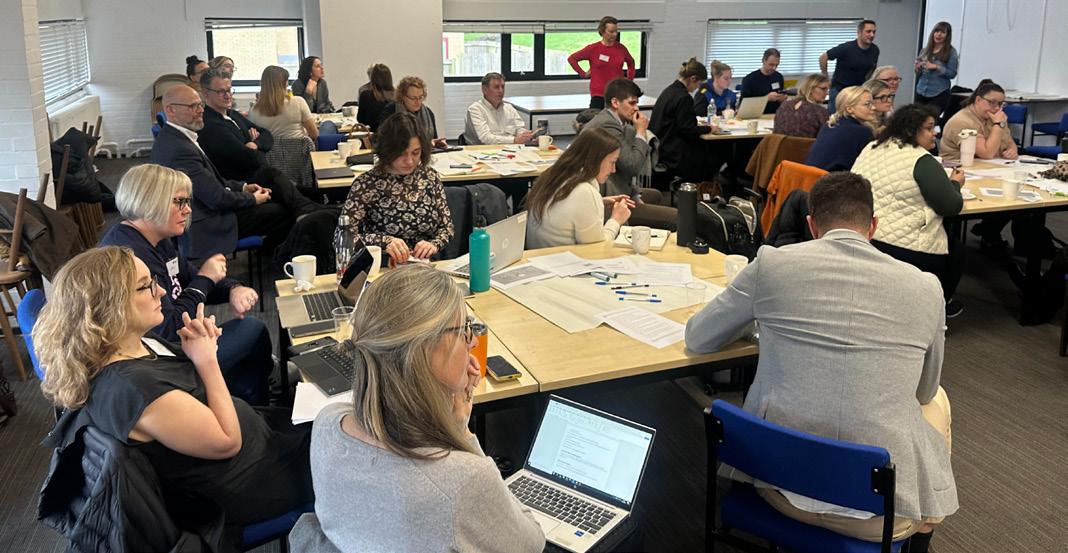
organisers
Dr Emily Setty (School of Social Sciences), Jonny Hunt (University of Bedfordshire) and Jude Mukoro (School of Social Sciences).
Our participants
Thirty-eight people from academia, education, frontline services, law enforcement, the tech industry and policy sectors.
There has been much attention on the rapidly evolving landscape of image-based sexual abuse (IBSA) among young people, focusing on ‘sextortion’ and ‘deepfakes’. By examining their precise nature, prevalence and the connections between new/evolving and traditional IBSA, can we develop a research, policy and practice agenda?
• The use of AI-generated deepfakes is reshaping the landscape of abuse, making it quick and easy to create fake images. Alongside this, financially motivated sextortion is becoming a growing threat. Yet current legal frameworks may deter young people from seeking help and a call was made for legal protections that avoid criminalising victims.
• A rights-based approach to education was discussed, recognising adolescent sexuality and image-sharing and focusing on equipping young people with the skills and values to navigate it safely.
• Cultural stigma surrounding sexuality is allowing exploitation, reinforcing the harm of IBSA. There were discussions about the gendered assumptions in educational materials that may leave young people more vulnerable.
• Several interlinked themes were highlighted by the presentations and discussions, collectively underscoring the urgent need for more collaborative and youth-centred responses.
• Development of an interdisciplinary position paper advocating for holistic, collaborative and rights-based approaches to IBSA affecting young people. The paper has been disseminated to relevant policy and practice audiences.
• Cross-sector collaboration, shared responsibility and open dialogue to engender long-term change.
• Outcomes have been developed into an academic publication focused on youth digital citizenship and image-based abuse, currently under review.
• New educational materials are currently being created based on ethical digital intimacy and practical harm reduction.

MIGRATION AND TECHNOLOGIES OF UN/BORDERING

Professor Venetia Evergeti (School of Social Sciences), Dr Maria-Nerina Boursinou (School of Social Sciences) and Dr Christina Verousi (Northumbria University).
Academics from a variety of disciplinary areas, including geography, sociology, political and socio-legal sciences, arts and humanities, as well as participants from the creative arts and NGOs. The geographical focus of the majority of the presentations was from outside the Global North.
Migration has become a contested issue, often presented as a ‘problem’ to be fixed through restrictive and technologically advanced border regimes. But technology can also give migrants the chance to advocate for change and foster solidarity. What can we learn from developments on the intersection of technology, borders and human mobility, alongside the anti-immigration regimes that racialize and threaten the human rights of migrants?
• Interdisciplinary discussions encompassed the areas of critical migration studies, media and communications, geography, human rights, law and more.
• Ongoing developments around digitalisation and datafication of the European bordering regime were explored, highlighting connections between various countries, including Cyprus, Greece, Italy and the UK, emphasising their key roles as border and transit countries or final destinations.
• Participants explored the interrelations between borders and their implications for migrant mobilities and safety. There was a focus on the idea that borders are not monolithic entities but extend across and within the social, cultural and political domain; and that unbordering and mobility should also be examined beyond the crossing of borders.
• The processes of building community cohesion and preserving – and indeed advancing – identity despite displacement and exclusion, was highlighted, in particular with the assistance of new and older technologies and traditional media, such as the radio.
• A roundtable discussion focused on how borders impact diverse populations, including the participating speakers from academia, the third sector and the arts. Participants explored the role that each field plays towards researching, educating and organising around borders. A central theme from this discussion was the need to reflect on the spectrum of activist tactics that can be employed in the struggle towards debordering and, crucially, the importance of considering our positionality, privileges and limitations when engaging in or even leading activist abolitionist work.
Surrey’s event was not a typical conference. It allowed for the fostering of a community, one that supports and listens, not only to each other, but to the ever-developing needs for collaboration.
Phevos Simeonidis, PhD candidate SGIA, Durham University
• The creation of a network of academics, practitioners and activists whose work focuses on migration, borders, technologies, solidarities and resistance.
• The production of a special issue on ‘Migration and Technologies of Un/Bordering’ in a journal focusing on human geography and interdisciplinary geopolitics.
An IAS Fellowship in 2023 has resulted in the publication of a book, surveying revolutionary history across the world through portraits of women activists – from the French revolution to contemporary online feminist collectives.
We chatted to host Dr Constance Bantman about the book.
This project emerged organically from Ivan Jablonka’s IAS Fellowship, as gender justice quickly emerged as a shared theme of interest between us. Ivan encouraged me to submit a book proposal to leading French publisher Le Seuil where he works as a series editor.
I am pleased that the book has been well received by readers and reviewers, and even appeared in a showcase review on French TV highlighting several women featuring in it. One reviewer’s comment nicely captures the book’s approach: “Constance Bantman’s fine collection is inscribed in the lineage of women writers who focus on nourishing and stimulating collective imaginations with alternative narratives – these narratives which do not idealise the values of courage, strength and heroism which have always been connected with the history of men since antiquity.”
One reviewer considered how the book plays a part in understanding women activists in today’s unsettled world. They noted how the role of conservative and neo-fascist populist governments in restricting women’s rights today echo the concerns of the women in the book. From Trump’s reversal of the right to abortion, to the banning of women raising their voices in public in Afghanistan, such policies show that there is now a need for new revolutionaries to embrace the models of rebellion featured in the book.
The next step is to find an English publisher for the book. My next (trade) book, also in French, will be on a different topic but definitely taps into all the skills I have gained with the experience of writing this public-facing book.
I also continue to work with Ivan, and I am about to publish a long book review on another woman activist in the prestigious online and public-facing journal which he co-edits, La Vie des Idees


The book plays a part in understanding women activists in today’s unsettled world.

Hosting artists in residence offer the opportunity to explore academic subjects in a creative context. During 2024–25 we welcomed three artists to the University, providing them with time, space and academic input to develop their ideas.

Simon Raven, in collaboration with Professor Victoria Tischler, was our artist in residence at Surrey’s School of Psychology. Simon’s creative focus is on disability art and satire in the context of austerity.
Informed by his own lived experience of Bipolar 2, Simon’s six-month residency explored the use of satire in disability art, considering how humour, irony and exaggeration can be used to challenge prejudicial attitudes towards disabled people. This was an opportunity for collaboration that helps explain scientific and specialist disability using an artistic form.
He devised a ‘bipolar methodology’ of art-making, informed by Salvador Dali’s Paranoid Critical Method. Bipolar methodology includes catastrophising about world events, doomscrolling and making performance that are simultaneously manically grandiose and depressively ‘non visible’. This included performing unsignposted acts in a garish gold Elvis suit, facing out of a fifth-floor window in the School of Psychology, alluding to a gold angel sculpture on the spire of a nearby cathedral. Simon also made satirical music using AI, crafting ‘bipolar’ lyrics in response to his experiences of mental illness at university.
For his final residency event, he gave a satirical performance lecture entitled ‘Why choose bipolar?’ He wore his gold Elvis suit and attempted to sell the notion that choosing to be bipolar might offer unique career advantages.

In response to Tischler’s research on olfactory function, he also considered the relationship between event-based bipolar and olfactory sensation and devised a satirical luxury perfume, ‘Depression, by Simon Raven’.
As a result of Simon’s residency, he is collaborating with Tischler on an article to be published in Psychology Today as well as a chapter in a book about psychology and art. He will continue to develop AI music and performance using his bipolar methodology.
As a branch of humanities, art really is constantly renegotiating who we are and what we believe and what’s considered valuable or not.
Imagine an exhilarating immersive experience, blending sound, light and visual effects to create a compelling performance. Awardwinning voice performer, Harry Yeff, aka Reeps100, worked with Surrey’s Institute of Sound Recording to develop improved software tools and interfaces to transport audiences to a different acoustic environment.
Harry, who has a global following with over 100 million online views, worked with Professor Enzo De Sena and Surrey PhD students to bridge the gap between academic research in spatial audio and its application in the arts. They created bespoke interfaces to allow Harry’s beats and voice to be dynamically positioned in three-dimensional space, integrating these with visual effects.
The resulting composition was presented at the 27th International Conference on Digital Audio Effects (DAFx) in September 2024 to an international audience of 160 people from industry, academia and the public.
The performance featured Harry’s vocals, spatialised using the integrated software over

a ten-loudspeaker circular array which surrounded the audience. Harry was seated in the centre of the room, with four laser beams converging above him. An LED light ring encompassed the audience.
This immersive experience created an auditory illusion that the room was changing, morphing into a different shape, enabling the audience to feel transported to a different acoustic environment.
Harry says,
People want to be able to listen and perform in innovative new ways. And if you can find something very functional and creatively explosive, it’s very powerful and that can scale.
A prominent expert in the field described it as the most compelling concert performance in DAFx’s 27-year history.
The collaboration continues and Harry is planning to tour the performance across the UK.
What role might sound play in helping us perceive and engage with the realities of climate change? This was the question at the heart of sound artist Boris Allenou’s residency at the School of Biosciences.
As part of his IAS Fellowship, Boris developed a creative music piece representing the unseen consequences of global warming on the UK tick species. His work, titled Acous-Tick, uses the process of sonification, a technique using non-speech audio to perceive data and create a novel way to look at tick dynamics.
Boris worked with Surrey’s Dr Marine Petit, a tick virologist, whose expertise informed the scientific framework of the project. Acous-Tick integrates mathematical modelling, ecological data and field recordings to produce a sonic representation of the tick’s lifecycle under changing climatic conditions. The rising intensity of the finished composition reflects a sense of climate anxiety, striking an emotional chord with the audience.

Acous-Tick Showcase was presented to an interdisciplinary audience of academics, students and local community members in June 2025. The event included a talk by Boris, a technical demonstration of the sonification process, and a listening session of the final 15-minute composition.
Public engagement was also an important part of the project. Friends and family of all ages were invited to contribute their hand-drawn illustrations of ticks. These were then used in the video project that accompanied the piece.
Moving forward, Boris would like to see Acous-Tick as a multi-format project, including interactive installations and an expansion of the composition for audiences to compare alternative futures sonically. Further collaborations with data scientists, ecologists and designers will explore sonification as a tool for public engagement and education.
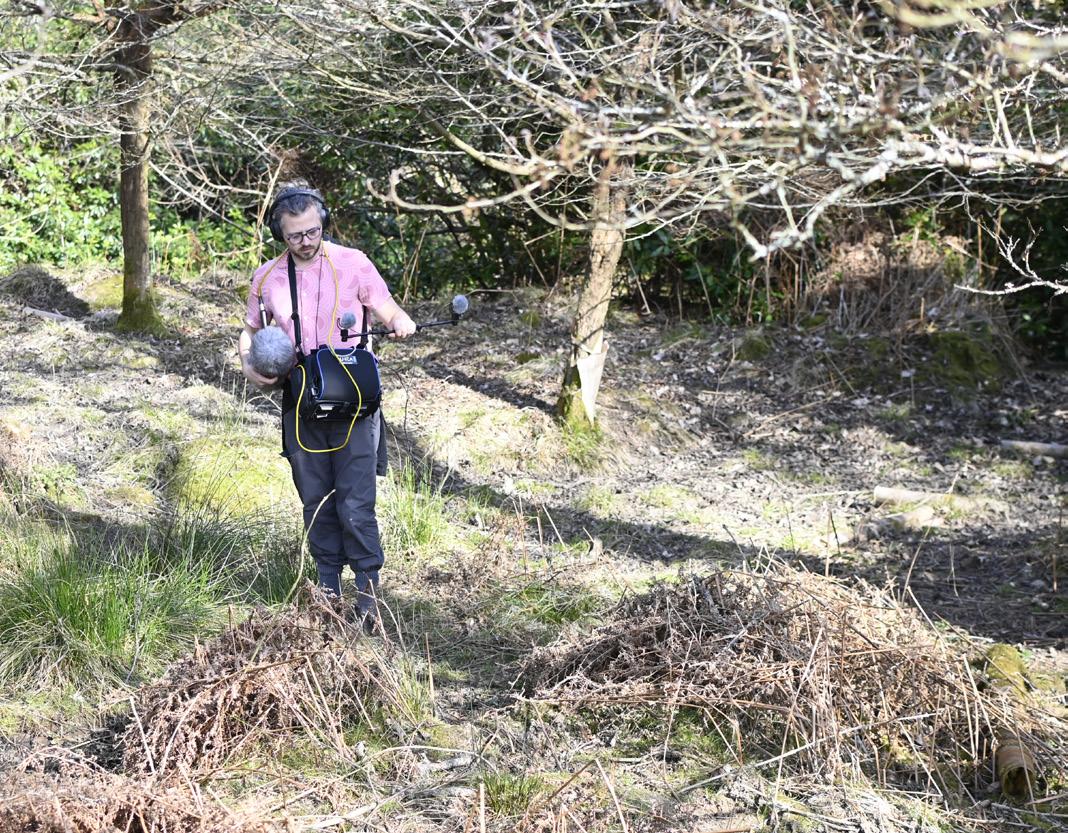
Acous-Tick uses the process of sonification, a technique using non-speech audio to perceive data and create a novel way to look at tick dynamics.

Rosa, University of Wisconsin-Madison, USA
Surrey Host: Dr Christos Dadousis, School of Health Sciences
I would say that AI has just started to show some of its power. The rapid development of AI models is expected to revolutionise human and veterinary medicine.
Dr Christos Dadousis
Research is key to ensuring safe, sustainable and efficient livestock management and thus support global food production. How can we leverage modern sensor technologies to achieve this? Collaborating with his host, Dr Christos Dadousis, Professor Guilherme Rosa used his time at IAS to investigate the use of AI, big data and informatics to improve animal health and livestock production.
The Fellowship brought together Guilherme’s vast experience in developing tools for the analysis of livestock data and Surrey’s capability in veterinary and human health informatics. Christos proved to be the ideal host, having joined Surrey’s Health and Biomedical Informatics group and the vHive in 2023.
Guilherme says, “I first met Christos many years ago when he came to UW–Madison to work on his PhD research, which he was conducting at the University of Padova in Italy. His project focused on the genetics of dairy cows and their association with cheese productivity. His project was very successful, and our collaboration resulted in several published manuscripts.”
To strengthen their collaboration, they successfully applied for the Fellowship. Guilherme visited the University twice in a year, each visit lasting a full week. During his visits he presented two short courses – one on mixed models applied to quantitative genetics and another on digital tools and AI applied to livestock production – and two seminars. He also had the opportunity to meet with students and researchers to discuss their projects and explore potential collaborations.


By developing herds that are more productive, more disease-resistant and more feed-efficient, we enable producers to achieve higher output with fewer inputs such as feed and medication, thereby reducing the environmental impact.

Christos explains, “The term AI is broad and covers a variety of advanced statistical techniques for regression, classification and clustering purposes, computer vision and text summary, such as neural networks, support vector machines, deep learning and large language models. At present, AI in livestock science is limited to specific advanced statistical models.”
Hence, the Fellowship focused on the role that informatics play in advancing precision livestock farming, an umbrella term encompassing big-data analysis, informatics, machine learning, etc. “Precision livestock farming (PLF) involves collecting large amounts of data from sensors such as wearable devices, identification tags and computer vision systems,” Guilherme explains. “This process requires data transmission, management, cleaning and harmonisation, followed by extensive analysis using machine learning algorithms to develop predictive models. These models have a wide range of applications, including assessing body weight and body condition, monitoring animal welfare, detecting diseases early and identifying individual animals.”
During the collaboration, Guilherme and Christos investigated the genetic improvement of livestock and companion animals using genomic prediction – models based on genotypic data to forecast traits like disease susceptibility, fertility and production.
They also looked at the use of sensor technology and digital tools to measure hard-to-capture traits such as feed intake and feed efficiency in livestock. Finally, they developed sensor-based tools to support herd management, such as a computer vision system that assists beef producers in optimising feed management – cutting waste and boosting performance.
Guilherme reflects on the highlights of his Fellowship: “This collaboration and Fellowship have already generated many outputs and accomplishments, including the potential visit of a student from the University of Surrey, Mrs Nisha Tucker, who may come to UW–Madison as a visiting scholar. I have an ongoing research project in collaboration with Christos, and we are also exploring opportunities to submit grant proposals to fund additional projects.”
Christos adds, “By connecting people from different backgrounds, we’ve helped lay the groundwork for future projects, research opportunities and industry-academic collaborations.”
Surrey host: Dr Giovanni Iacobello, School of Engineering

The role of hills and mountains in weather and Earth system modelling has always been uncertain, yet crucial to our understanding of land management, wildfire prediction and resilience to extreme weather events. Tirtha Banerjee’s Fellowship at IAS sought to investigate wind flow and turbulence over hills and forests using laboratory experiments and advanced data analysis techniques.
Tirtha’s Surrey host, Dr Giovanni Iacobello, says, “The collaboration started about five years ago, following the reciprocal interests of investigating atmospheric turbulence and exploring novel data-driven methodologies in this field. We complement each other’s strengths, due to the extensive experience of Tirtha on atmospheric flows from a theoretical, numerical and experimental viewpoint and my experience on graph-based (data-driven) methods for turbulent flow analysis.”

One of the key highlights has been the opportunity to connect with faculty and students at the University of Surrey and other institutions across the UK. The experience has served as a valuable cultural and academic exchange, offering deeper insight into the structure and dynamics of UK academia compared to the US system.
Associate Professor Tirtha Banerjee
During the Fellowship, Tirtha and the research group at Surrey (with assistance from Dr Alec Petersen, postdoctoral researcher in the Banerjee Lab at UC Irvine) used the wind tunnel at EnFlo laboratory at Surrey to study how air flows over vegetated hills. They collected real-world data to test existing ideas and to come up with new ones about how the atmosphere behaves near the ground in such environments. These data were analysed using a combination of statistical techniques. By combining what they learned from experiments and simulations, the research group aims to come up with new approaches to model how energy, air, heat and moisture move between the land and atmosphere – especially over hilly terrain covered with vegetation.
“Forests are highly heterogeneous in vertical and horizontal structure, so we ask, how do different canopy architectures modulate turbulence and momentum transfer?” says Tirtha. “High-resolution field measurements like sonic anemometers and LiDAR, are sparse and expensive. So we looked at the most effective strategies for integrating observational data into model calibration and validation.”
The importance of their research cannot be underestimated. It can contribute to improving wildfire forecasting and response, strengthening resilience to extreme weather, and promoting sustainable management of land and ecosystems. For example, when it comes to the challenge of wildfires, the research helps predict how fires will spread, improves smoke forecasts to keep firefighters safe, and helps plan where to clear vegetation by identifying wind corridors and places most at risk of fires.

The research helps to predict how wildfires will spread.
Interdisciplinary research often requires a variety of approaches and effective communication to tackle complex problems. The IAS Fellowship supported such research, allowing Tirtha to visit Surrey laboratories and actively engage with the host and departmental staff, thus promoting effective networking and brainstorming which is not easily doable through online meetings.
Dr Giovanni Iacobello
During his Fellowship, Tirtha established many collaborations among Surrey faculty, PhD students and postdoctoral scholars. He also presented a seminar, prepared conference presentations and journal manuscripts based on the new experimental and analytical outcomes, and is planning a joint NSF-UKRI proposal seeking support for expanded experiments, field campaigns and student exchanges.
What does the future hold for Tirtha? “The Fellowship has sparked ideas for future collaborations, laying the groundwork for sustained international research partnerships,” explains Tirtha. “I hope to tackle further research into how organised flow patterns change over forested hills under different atmospheric stability conditions, which could reveal new insights into transport barriers and mixing zones, critical for modelling pollutant dispersion, fire spread and moisture transport. I’ll also be looking at research that could help us improve resilience modelling and inform adaptive land management strategies under environmental stress.”

Surrey host: Dr Sacha Beniamine, Surrey Morphology Group
English speakers are familiar with the idea of adding ‘ed’ at the end of a verb to indicate the past tense. However, with around 7,000 languages spoken globally, exploring the similarities and differences of how words are formed in grammatical categories such as this is a great challenge. Mapping these variations – or ‘inflectional morphology’ – was at the heart of Dr Mae Carroll’s Fellowship at IAS.
Inflectional morphology displays some of the most visible and extensive cross-linguistic variation. In the absence of a complete systematic characterisation of variation, advanced techniques are needed to measure this variation both within and across languages.
Mae’s research, in collaboration with Dr Sacha Beniamine at the Surrey Morphology Group, addressed this and developed the appropriate research infrastructure to begin classifying real-world examples.
Mae says,
This project is part of a much larger ambition to classify the world’s structural diversity, and the work completed here will be a keystone project that demonstrates the validity of our approach.
Mae and Sacha had previously collaborated in developing a sophisticated theory and implementation to solve this problem and through the Fellowship aimed to advance the world’s first complete typology for the variation of these linguistic differences. This included the classification of languages and samples from the lexicons of a range of languages representing the world’s inflectional diversity, such as Ngkolmpu, a Yam language of New Guinea; Pitjantjara, a Pama-Nyungan language of Australia; Pame, an Oto-Mangean language of Mexico; and Hungarian.
Mae and Sacha’s collaboration continues, as they are meeting in Melbourne in 2026, and at some point hope to host an international workshop in order to set up a global network. The work this Fellowship generated has provided new avenues for research into linguistic morphology. Their revision of the theoretical paper underpinning their research has been accepted for publication in the journal Morphology



Surrey Host: Dr Athina Ioannou, Business Analytics and Operations

Generative AI (Gen AI) is a hot topic –its strategic and business value is not yet fully understood. And do we trust it?
Professor Mikalef’s Fellowship explored how Gen AI technologies like ChatGPT can add value to an organisation. However, a lack of transparency on where and how AI is used can influence stakeholder trust, affecting the overall performance of an organisation.
The combination of Patrick’s expertise in information systems, especially AI, and Surrey’s Dr Ioannou’s research on adoption and diffusion of emerging technologies, formed the backbone to this Fellowship.
The Fellowship consisted of two visits. The first included delivering a lecture to academic staff to discuss the ethical implications and societal impacts of AI. It raised awareness about the necessity of integrating responsible practices into AI research and development, with an emphasis on transparency, fairness and accountability. Following the lecture, an open discussion enabled participants to explore innovative research approaches while considering ethical ramifications.

Patrick commented:
“The interactions not only aided in advancing the research of the faculty and students but also reinforced the significance of responsible AI in academia.”
A second visit built upon these collaborations, focusing on advancing research in explainable AI (XAI) –techniques that enable us to understand and trust decisions made by AI. Patrick also prepared joint research papers with Surrey colleagues, looking at how explainable AI can enhance trust, accountability and effectiveness in complex decision-making contexts. This visit also initiated plans for collaborative funding proposals.
The time spent engaging directly with faculty and jointly shaping research agendas has laid the groundwork for sustained and impactful collaboration. Patrick says,
Surrey host: Professor Wenwu Wang, Centre for Vision, Speech and Signal Processing (CVSSP)
Computer vision systems can be trained to determine the difference between objects like a cat and a dog. However, can they distinguish a panda from a cat, for example? During a two-week Fellowship visit in 2025, Associate Professor Bingfeng Zhang worked with his host, Professor Wenwu Wang, to develop intelligent systems capable of understanding and identifying novel object categories with minimal supervision.
Bingfeng has expertise in weakly supervised and few-shot semantic segmentation – methods to train a model to identify novel object categories with large datasets that have incomplete or imprecise labels. His IAS Fellowship, working with Surrey’s CVSSP, was an ideal collaboration, given the Centre’s world-leading research in multimodal signal processing and machine learning.
A seminar he delivered to faculty members and students, sharing his recent advances in the subject, sparked lively discussions and several attendees expressed interest in his research’s potential applications in robotics, environmental monitoring and medical imaging.
One highlight for Bingfeng was a discussion he had with a PhD student working on underwater marine life classification. They explored the challenge of identifying certain fish species in low-visibility environments, discussing how multimodal inputs – like sonar data, textual field guides and sparse visual observations –could enhance accuracy. This sparked the promise of future collaboration.
Bingfeng and Wenwu are continuing to work together, preparing several joint papers for submission, alongside developing a proposal for the Royal Society International Exchanges Scheme to secure long-term funding. They also plan to co-supervise PhD students on multimodal segmentation projects. Bingfeng will invite Wenwu to the China University of Petroleum (East China) to deliver a keynote lecture and student workshop.

Bingfeng concludes,
[The Fellowship] enabled meaningful academic exchange, initiated concrete research collaborations and deepened personal connections. I gained new perspectives on multimodal AI, benefitted from CVSSP’s cutting-edge research environment, and experienced the warmth of its academic community.




City University of New York, USA
Surrey host: Professor Naomi Winstone, Surrey Institute of Education
How does feedback in an educational setting shape students’ motivation, emotions and broader development – as well as learning outcomes? This question inspired Professor Anastasiya Lipnevich to examine it further during her Fellowship, in collaboration with her host, Professor Naomi Winstone. Anastasiya and Naomi recognised the need for the research community to forge a rigorous psychological science of feedback. For example, they conducted a deep investigation into the effects of praise on student performance, analysing data from a mix of sources. Anastasiya says, “Some of my studies are experimental, with carefully controlled feedback conditions to examine cause-and-effect relationships. Others are large-scale survey-based or longitudinal studies that allow us to track changes in motivation, wellbeing and performance over time.”
Visiting Surrey from City University of New York, Anastasiya, along with Naomi, met with faculty from the Veterinary and Medical Schools, engaging with PhD students and conducting one-on-one sessions with both faculty and students. They also travelled to Cambridge to discuss the topic of oral assessment, where they outlined plans for collaborative studies on
this assessment approach. These interactions provided fresh perspectives on current educational challenges and inspired new avenues for research.
They began drafting a book manuscript addressing common misconceptions about feedback and how to dispel them, shedding light on the nuanced role feedback plays in student development. This work has now led to a book deal for The Myth of Feedback, and they are establishing the Feedback Lab, an interdisciplinary community aimed at exploring innovative feedback methodologies and fostering collaboration.
Anastasiya says,
Overall, this Fellowship provided an unparalleled environment for concentrated scholarly work, enabling tangible progress on a project with high potential impact for both the research and educational communities.

Dr Pranav Khandelwal
Surrey host: Dr Robert Siddall, School of Mechanical Engineering

Biodiversity loss and extinction events threaten our planet. While conservation science and monitoring are recognised as an essential part of tackling this challenge, some habitats remain understudied due to their inaccessibility. Fellowship recipient Dr Pranav Khandelwal looked to the rainforests of India to provide an answer.
Dr Khandelwal has been studying flying lizards for years. He has observed their gliding behaviour, discovering how they modify their body shape and limb position to perform take-off, gliding and perching. Using these insights, Pranav and his host, Dr Robert Siddall, embraced biomechanics, robotics and conservation science to design and prototype functional, minimally invasive gliding robots capable of navigating fragile ecosystems, such as forest canopies.
Using 3D biomechanics field data from India’s Agumbe rainforest, Pranav and his team constructed a 3D-printed prototype. A second, larger robot was then prototyped, which included a tail capable of dynamic movement during gliding, inspired by the perching behaviour of flying lizards. This second robot was able to change its pitch mid-flight and adopt a landing position. This ability is crucial as means it can land on tree trunks and carry out tasks such as surveying and photographing local flora and fauna.
Pranav hopes to build on this research and develop the next generation of the robot, with active limb actuation.
The data and robotic platforms developed during the Fellowship have already sparked new research partnerships. Seminars at Virginia Tech led to an ongoing collaboration with academics with decades of experience in the biomechanics of gliding animals. These collaborations will be further developed as Pranav takes up a new position at Claremont McKenna College in the USA.
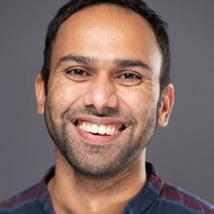
Pranav says,
The support of the IAS has been instrumental in advancing this work, and we are grateful for the opportunity to initiate this high-impact, cross-continental collaboration.

Professor Jian Xu, from Nanjing Institute of Environmental Sciences, China, and his host, Dr Benyi Cao, have strengthened their collaboration since the IAS Fellowship in 2023–24.
They have continued to focus on ways of reducing pollution caused by pesticide production. Together, they investigated heavy metal pollution in a specific farm field near an industrial area. By using a combination of advanced analytical techniques, they were able to ‘fingerprint’ the pollution and trace it back to its sources.

Their work provides a precise method for identifying pollution sources on a very local scale. This is vital as it allows environmental agencies to develop targeted strategies to stop contamination at its source, helping to protect our soil and food safety.
Jian and Benyi’s research has been published in the journal Agronomy

During his Fellowship, Professor Jonathan Black, from Virginia Tech, USA, investigated the potential of networks of satellites bringing internet access to underserved areas, has since led to him securing a US National Science Foundation grant.
As a result of the grant, his host, Professor Nishanth Sastry, has co-authored a paper, published in the proceedings of the IEE International Conference on Computer Communications (INFOCOM), 2025, one of the most prestigious events in the field.
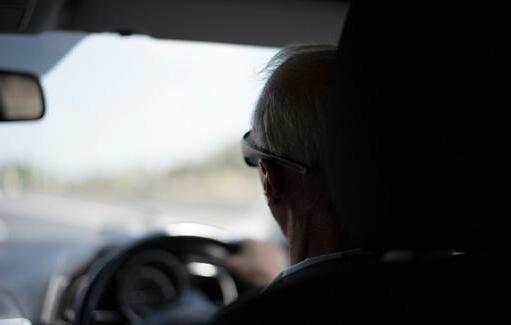
Professor Jaka Sodnik spent his Fellowship at IAS exploring how to assess the driving proficiency of older and vulnerable people, using an advanced driving simulator.
After his time at Surrey, Jaka and his host, Dr Nikolas Thomopoulos, presented a joint conference paper at the 57th Universities’ Transport Studies Group Annual Conference in Dublin in June 2025.
Jaka also invited Nikolas to join the University of Ljubljana, Slovenia, as a visiting scholar to continue their joint research and teaching collaborations. Nikolas will review teaching material and practices at the University of Ljubljana, offering improvement suggestions from a social science perspective, and Jaka will deliver guest lectures at Surrey.


Dr Rosemary Gibson from Massey University, New Zealand, focused her Fellowship on an analysis of sleep and ageing in the UK news, in collaboration with her host Professor Robert Meadows.
The resulting paper – Exploring Representations of Sleep and Ageing in News Texts – is in production and has been accepted for an oral presentation at the forthcoming Australian Association of Gerontology Conference in Alice Springs.

In 2023–24, IAS welcomed Dr Rohan Shah from KEM Hospital Research Centre, India, to collaborate with his hosts, Dr Agnieszka Lemanska and Dr Anand Ahankari from the School of Health Sciences. Rohan’s Fellowship focused on exploring the complex causes of anaemia which affects over 50 per cent of adolescent girls and women in India.
As an outcome of his Fellowship, Rohan has co-authored a paper now published in the peer-reviewed journal, Anemia
Together with Dr Ahankari, Rohan submitted a successful Postdoctoral Fellowship application to the Harvard T. H. Chan School of Public Health, supported by the Narotam Sekhsaria Fellowship. He has also been awarded an honorary appointment as Department Associate in Social and Behavioral Sciences at the same institution for one year. This opportunity allows him to continue his research on adolescent anaemia under the guidance of Dr Ahankari, who is now a visiting academic at Surrey.
Dr Rohan Shah says:
In this entire journey, IAS has remained an important foundation stone of my career, and I warmly thank you for the support and encouragement throughout.

Fellow Professor Dominic Foo, in collaboration with his host, Dr Michael Short, used his time at Surrey to develop and promote open-source software that helps lower-income countries transition to renewable energy. Dominic and Dr Short were awarded research funding for the project from the Foreign, Commonwealth and Development Office. Since then, they have had a paper accepted for publication in Energy Strategy Reviews, entitled ‘Optimal Transition Pathways to a Net-Zero Power Grid in the Philippines’.
Also as a result of the Fellowship, the University of Surrey and University of Nottingham Malaysia have signed a bilateral student exchange agreement, where undergraduate students in chemical engineering programmes can spend time at either institution, starting in the next academic year.
This is a fantastic opportunity for our students to gain new skills, learn about global industrial challenges in different environments and become international graduates. We hope to extend this programme to further courses in future years.
says Dr Short
A 2024 IAS workshop exploring green hydrogen production, biomass valorisations, and CO2 capture and utilisation has resulted in a new collaboration for organiser, Dr Hui Luo.
Dr Luo is now working with Imperial College London and Technical University of Denmark to study the reaction mechanism in plastic electrolysis, having been awarded beamtime following a competitive selection process. This has granted her access to carry out a multi-day experiment at Diamond Light Source, the UK’s national synchrotron science facility.


Dr Martin Hawes from the School of Veterinary Medicine hosted a workshop in 2024 which explored ways to improve medication errors, a leading cause of avoidable harm in patients. As a result, a paper has been published in the Journal of Veterinary Medical Education mapping Day One pharmacology competencies to the Competency-based Veterinary Education (CBVE) framework.
A workshop held in 2023 brought together scientists and clinicians to explore obstacles in translating into clinical practice the vast amounts of knowledge generated by chronobiology.
The workshop, hosted by Professor Sara Montagnese and Professor Debra Skene, focused on the evaluation of evidence for daylight saving time contributing to road traffic accidents, and for delayed school times resulting in increased sleep duration in high school children.
As an outcome of this workshop, a paper has been published in Chronobiology International


Dr Arshdeep Singh from the Centre for Vision, Speech and Signal Processing has participated in and led further events, following his IAS workshop in 2024 which investigated how AI can be developed and deployed sustainably.
Arshdeep organised a special session on AI and sustainability in signal processing for the IEEE International Workshop on Machine Learning for Signal Processing 2024. He was also invited to talk on the subject of AI and sustainability at an International Faculty Development programme event organised by HRDC IEM-UEM Group and the Indian Institute of Technology, Mandi, India. He also won the best poster award at the UK AI 2025 conference.

DR SHAONA BARIK
Visva-Bharati University, India
Surrey host: Dr Charlotte Mathieson, Literature and Languages
Fellowship focus: Advancing dialogues on Victorian mobilities between Britain and India with a focus on representations of mesmerism (a form of hypnotism).
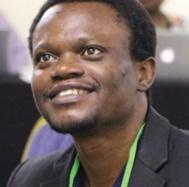
DR OYETUNDE OYEYEMI
University of Medical Sciences, Nigeria
Surrey host: Dr Joaquin Prada, Comparative Biomedical Sciences
Fellowship focus: Developing an AI-driven assessment of malaria interventions to identify effective control policies in Nigeria.

DR MARTA PRANDELLI
Dublin City University, Ireland
Surrey host: Dr David Griffiths, Sociology
Fellowship focus: Combining empirical and theoretical insights on intersex issues and LGBTQ+ politics.
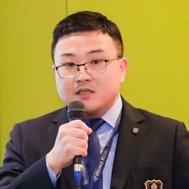
ASSOCIATE PROFESSOR
HENGYUN (NEIL) LI
The Hong Kong Polytechnic University, Hong Kong SAR, China
Surrey host: Professor Gang Li, Surrey Hospitality and Tourism Management
Fellowship focus: Exploring the impact of Generative AI on hotel marketing, and how employees can use it effectively.
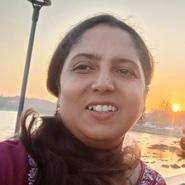
DR CHAITHRA PUTTASWAMY
Indian Institute of Technology Kanpur, India
Surrey host: Dr Oliver Bond, Surrey Morphology Group
Fellowship focus: Exploring the growth of complex predicates in Dravidian languages of southern India.

DR BRYAN KHAN
Independent academic, Trinidad and Tobago
Surrey host: Dr Randall Ali, Music and Media
Fellowship focus: Establishing intellectual property (IP) protection for acoustic signatures in physical spaces.




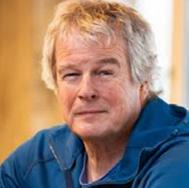
DR MOHAMED ELSADEK
Tongji University, China
Surrey host: Dr Melissa Marselle, School of Psychology
Fellowship focus: Investigating the human acceptance and psychological benefits of nature-based solutions to the climate crisis.
DR ANASTASIA OLGA (OLNANCY) TZIRIDES
University of Illinois, USA
Surrey host: Dr Vily Papageorgiou, Surrey Institute of Education
Fellowship focus: Promoting evidence-informed pedagogical use of Generative AI in learning design and teaching in the higher education sector.
DR TANJA BEER
Queensland College of Art and Design, Griffith University, Australia
Surrey host: Kathryn Downton, Guildford School of Acting (GSA)
Fellowship focus: Re-thinking traditional design practices by integrating ecological principles into scenographic thinking and production.
DR ANTHONY HALOG
University of Queensland, Australia
Surrey host: Dr Lei Xing, School of Chemistry and Chemical Engineering
Fellowship focus: Exploring the use of AI and digital tools to make green hydrogen production more efficient and sustainable.
PROFESSOR STEVEN ONGENA
University of Zurich, Switzerland
Surrey host: Dr Vasileios Pappas, Accounting and Finance
Fellowship focus: Expanding research into the impact of a new definition of community banks, exploring areas such as lending availability and competition.

KATRINA PORTEOUS
Independent artist, UK
Surrey host: Dr Tom Hall, Music and Media
Fellowship focus: Promoting the musical legacy of UK electronic music pioneer Peter Zinovieff by creating definitive recorded versions of six collaborations.

BHAVANI ESAPATHI
Independent artist, UK/India
Surrey host: Dr Anastasia Loukianov, Sociology
Fellowship focus: Visualising what climate migration means to people through participatory art workshops.

JURAJ MAJCIN
European Policy Centre, Belgium
Surrey host: Professor Theofanis Exadaktylos, Philippe Lefevre, Politics and International Relations
Fellowship focus: Defining the evolving role of international institutions and the EU-UK relationship in defence.
The IAS Advisory Board’s members are senior members of the University faculty, including the Associate Deans of Research and Innovation from the three faculties, two Surrey Future Fellows and an external member. The Institute’s Advisory Board advises on the strategy of the Institute and reviews and recommends which bids should be funded in the annual competition.

EMILY CORRIGAN-KAVANAGH
Surrey Future Fellow in Faculty of Engineering and Physical Sciences

DEBORAH DUNN-WALTERS
Professor of Immunology (Associate Dean Research and Innovation, Faculty of Health and Medical Sciences)

JOSEF KITTLER
Professor of Machine Intelligence

JUSTIN READ
Professor of Astrophysics

DERK-JAN DIJK
Professor of Sleep and Physiology

PROFESSOR NOPHAR GEIFMAN
Professor of Health and Biomedical Informatics

CATHERINE MCNAMARA
Head of Guildford School of Acting (GSA)

EMMA TAYLOR
Surrey Future Fellow in Faculty of Health and Medical Sciences

PROFESSOR RAO BHAMIDIMARRI
Academic and Technical Consultant

MARIALAURA DI DOMENICO
Professor of Entrepreneurship, Work and Organization
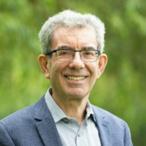
NIGEL GILBERT
Professor of Sociology (IAS Director)

GLENN PARRY
Professor of Digital Transformation (Associate Dean Research and Innovation, FABSS)

JIN XUAN
Professor of Sustainable Processes (Associate Dean, Research and Innovation, FEPS)
